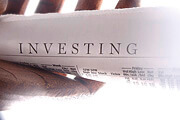Investing: Boost your GIC returns
If you use them right GICs have an edge over bonds.
Advertisement
If you use them right GICs have an edge over bonds.
 Everyone needs a little safety in their portfolio, which is why many investors include short- term bonds. But there’s another option that many never consider: passing on the bonds and using GICs instead.
Guaranteed investment certificates get a bad rap. The main reason is the low rates offered by the big banks: at press time, CIBC and Scotiabank offered one-year GICs at a paltry 0.4%, while a five-year certificate at Royal Bank would net you just 2%. That hardly gets your pulse racing, especially compared to mutual funds or exchange-traded funds (ETFs) holding short-term bonds, which yield about 4%.
But it’s an unfair comparison. First, you can do much better with GICs if you enlist the help of a deposit broker. In late September Tom Glover of GIC Broker.com was offering his clients one-year GICs at 1.275% and five-year GICs at 3.3%” if you were tucking away $25,000, he could get you 3.8%.
We hear you scoffing. Even 2.5% or 3% annually from a GIC sounds underwhelming. But when you consider risk and costs, whatever edge short-term bond funds might have over GICs* can quickly disappear:
Everyone needs a little safety in their portfolio, which is why many investors include short- term bonds. But there’s another option that many never consider: passing on the bonds and using GICs instead.
Guaranteed investment certificates get a bad rap. The main reason is the low rates offered by the big banks: at press time, CIBC and Scotiabank offered one-year GICs at a paltry 0.4%, while a five-year certificate at Royal Bank would net you just 2%. That hardly gets your pulse racing, especially compared to mutual funds or exchange-traded funds (ETFs) holding short-term bonds, which yield about 4%.
But it’s an unfair comparison. First, you can do much better with GICs if you enlist the help of a deposit broker. In late September Tom Glover of GIC Broker.com was offering his clients one-year GICs at 1.275% and five-year GICs at 3.3%” if you were tucking away $25,000, he could get you 3.8%.
We hear you scoffing. Even 2.5% or 3% annually from a GIC sounds underwhelming. But when you consider risk and costs, whatever edge short-term bond funds might have over GICs* can quickly disappear:
Affiliate (monetized) links can sometimes result in a payment to MoneySense (owned by Ratehub Inc.), which helps our website stay free to our users. If a link has an asterisk (*) or is labelled as “Featured,” it is an affiliate link. If a link is labelled as “Sponsored,” it is a paid placement, which may or may not have an affiliate link. Our editorial content will never be influenced by these links. We are committed to looking at all available products in the market. Where a product ranks in our article, and whether or not it’s included in the first place, is never driven by compensation. For more details, read our MoneySense Monetization policy.
Share this article Share on Facebook Share on Twitter Share on Linkedin Share on Reddit Share on Email